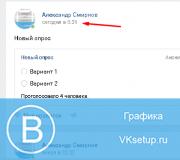Protocol for certification of correspondence and copies of electronic documents. Notarization of electronic mail correspondence
It's no secret that in modern realities E-mail correspondence is widely used for both business and personal purposes. Often companies are located in different regions Russian Federation and conclude an agreement by exchanging signed scans of the agreement.
By exchanging emails, they conclude contracts, exchange various documents (estimates, additional agreements, agreements on changes), send certificates of completed work and simply negotiate. Very often there is a need to give this dialogue legal force to later be used as evidence in court in case of dishonest behavior of a partner.
Often, notaries have to certify even threats that come through email!
Paragraph 3 of Article 75 of the Arbitration Procedure Code of the Russian Federation clearly states that “Documents received by facsimile, electronic or other communications, including using the Internet information and telecommunications network, as well as documents signed electronic signature in the manner established by the legislation of the Russian Federation, are admitted as written evidence,” and the courts of higher instances of the city of Moscow have long developed criteria for admissibility and reliability for agreements concluded by exchanging letters via e-mail. But what if the defendant denies those facts , which were written in black and white in letters?
Printing letters to in this case is not accepted by the courts, as it is easy to forge. This conclusion confirmed by established judicial practice.Notarization of emails will help restore justice.
Procedure for certification of electronic correspondence
To this protocol was conclusive evidence in court, a number of formalities must be observed. Briefly, the procedure for inspecting an email by a notary consists of the following steps:
- The notary checks the security of the Internet connection line for interference, the result of the check is reflected in the protocol
- Logs into the mail with the login and password provided by the applicant, reflecting them in the protocol
- Opens letters required by the applicant
- Makes a printout, recording the date, time, address of the sender and recipient for each letter
- If necessary, prints files attached to letters or writes them to a CD/DVD disk or flash drive
- Indicates in the protocol the software and hardware used
It is safe to say that a notarized protocol for examining emails is irrefutable evidence in court. According to Part 5 of Article 69 of the Arbitration Procedure Code of the Russian Federation, “Circumstances confirmed by a notary when performing a notarial act do not require proof if the authenticity of a notarized document is not refuted in the manner established by Article 161 of this Code, or if the notarial act has not been canceled in the manner established by civil procedural legislation to consider applications for notarial acts performed or refusal to perform them,” and this gives us a chance of a 100% victory in court! The notary certified it, which means this fact should be the basis of the judicial act, period.
It is almost impossible to challenge a notarial protocol; having such strong evidence, your opponent will not challenge the information from the correspondence in any way!
There is no reason to challenge the notarial protocol if the entire mail inspection procedure is followed. Even AFK Sistema, in a dispute with Bashneft for 170.6 billion rubles, using the help of highly qualified lawyers, was unable to challenge the notarial inspection protocol email correspondence with the participation of top managers of AFK and Bashneft. Subsequently this correspondence became one of the most compelling pieces of evidence in this case!
Our experience allows us to assert that when recording email correspondence in a notarial inspection protocol, this evidence always forms the basis of the decision and is not challenged by the other party!
Many lawyers and clients prefer not to waste time searching for a notary in Moscow and spending time in traffic jams, so the WebNotary service offers you delivery of a notarial mail inspection protocol.
Certification of electronic correspondence by a notary in Moscow
To certify your email, you don’t have to stand in traffic jams for several hours, sit in line and look for a notary who certifies correspondence!
We offer clients deadlines of several hours when the matter is urgent.
Delivery is carried out both by regular mail and by courier services.
We work with the best notaries and do not have a single challenged notarial act!
To order a protocol, you can contact us in any convenient way.
Notarization of email correspondence - Yandex, Google, Outlook, etc.
Notarization e-mail correspondence consists in drawing up an inspection protocol and a separate inspection of each recorded fragment of e-mail correspondence. The total cost of certification consists of the cost of the inspection protocol and the cost of examining each fragment of email correspondence. The inspection report, as a rule, reflects such unnecessary and irrelevant assurances technical specifications computer, as: Internet provider agreement, from which IP address you logged in personal account email, etc. After drawing up the inspection protocol, the notary or acting notary proceeds to inspect the email correspondence itself. Recording is carried out by photographing your email correspondence on digital camera. As a result, you receive a notarized certification of your email correspondence.
In accordance with paragraph 24 of Article 35 "Fundamentals of the legislation of the Russian Federation on notaries" (approved by the Supreme Court of the Russian Federation on 02/11/1993 N 4462-1) (as amended on 12/31/2017) (as amended and supplemented, entered into force from 01/11/2018) notaries certify the equivalence of a document on paper to an electronic document. As we can observe from the above law of the fundamentals of notaries, the maximum that a notary can do is take a photograph of the monitor screen and draw up an inspection report plus an inspection of each page, be it electronic correspondence or an Internet page. Average cost certification of 1 page by a notary (in Moscow) is: drawing up an inspection protocol from 10,000 rubles, plus from 1,500 rubles 1 A4 sheet of electronic correspondence or Internet page. You can also overpay the contractor who opened one of the forms of ownership of the organization (whether it is “LLC” or “ANO”). In this case, LLC acts as an intermediary who will take money from you not only for notary services, but also its commission!!! In a nutshell, how it works: initially you contact an organization that provides notarization services digital content, then you provide the login and password for your email, after which you pay the cost of such certification to the organization’s account. Next, you will receive notarization of your email correspondence, BUT the applicant for the certification of your correspondence will be this “LLC”, not you!!! Refund cash in this case it will not be possible, alas. On top of everything, you will pay not only for the “pure” work of the notary, but also for the fact that you turned to an intermediary, who took a commission from you. Thus, between you (as a client) and the notary comes the same organization (“LLC”) that requires you to provide the login and password for your email, and on behalf of the organization (and not from you!!!) will make an appeal to the notary. As a result, you will overpay at least 2 times.
How to properly provide electronic correspondence so that it is accepted as evidence in court?
The notary does not have special knowledge and does not have the slightest idea what it is email message, how the information and telecommunications network is structured and works and what, in principle, network technologies are. Since we have come to the conclusion that, from a procedural point of view, a notary is not authorized to carry out such procedural procedures as: discovery, securing and seizure of digital content, then these actions are authorized to be carried out by experts or specialists with appropriate qualifications. The specialists of our organization confirm their qualifications as “forensic experts” with state-issued documents, which is the main and undeniable advantage when certifying e-mail correspondence. As a rule, the conclusion of the specialist who performs the research (certification) contains the following questions:
- Was the email correspondence submitted for research subject to changes (compromise of data), as a result of which the submitted correspondence could be changed (letter characters)?;
- Determine who the sender is email, is it possible to determine the sender's email address? Is it possible to establish his full name?;
- Determine when the email correspondence submitted for research was sent/received?
The court very carefully pays attention to the above categories of issues and subsequently attaches to the case materials your electronic correspondence, certified by a specialist with the qualifications of a forensic expert.
Thus, we can conclude that in order to attach email correspondence to the case materials, there is no need to resort to the services of a notary, it is enough to conduct a full-fledged research, put the right questions and give detailed answers to them. To put it succinctly, the certification of correspondence by a forensic expert will be approximately as follows:
- The customer\sender's email is recorded;
- Electronic correspondence is recorded;
- The date and time of sending messages is recorded
- Study source code software, on which email is installed. If the web version of email is used, the reliability of the programmable part of the site is established;
Can electronic correspondence certified by a notary be rejected in court?
Of course, such a practice exists. To be on the safe side and protect yourself from such risks, you need to seek advice from our organization. Assurances by a forensic expert of electronic correspondence are accepted in the world, regional and arbitration courts Moscow and Moscow region. We will be able not only to advise you, but also to provide you with accurate information whether our assurances were provided to the court of Moscow or the Moscow region you are interested in.
Our specialists travel to the customer’s premises. In addition, you can use our services courier service. Your conclusion will be delivered at a time convenient for you. Also, the issuance of certifications is carried out around the clock in our central office at the address: Moscow, Kutuzovsky Prospekt, 36s4, office 311
With us you can get a free consultation and clarify any information you are interested in.
Situations often arise when evidence of certain facts exists only in electronic form. Let’s say you agreed with people in an email correspondence to complete the work and pay in advance, but they took the advance payment and disappeared. Or you have been subjected to certain insults. Many people think that the lack of a “paper” medium makes them unpunished. But in the Russian legal field there is a mechanism that allows you to certify electronic correspondence.
How is electronic correspondence certified?
Specialists from the website internetnotarius.ru told us that it is correct to call this procedure not certification of correspondence, but provision of evidence. The essence of the procedure is that the notary inspects the proposed correspondence and, based on the information received, draws up an inspection protocol, which records all the evidence you need.
Technically, the procedure looks like this:
- You come to the notary with your passport and submit an application to him, in which you briefly describe the circumstances and indicate the evidence that you need to provide.
- Separately, you provide the notary with the credentials for the account on which you want to perform the inspection. This can be not only mail, but also social network, forum and any other resource that involves the exchange of electronic messages.
- Next, the electronic correspondence is notarized: the specialist logs in using your credentials on the specified website, finds the correspondence that interests you, and records all the facts seen during the inspection in the protocol. Also additionally fixed technical parameters, such as the IP address of the service, detailed information about the sender of the letter, headers of the letter (if any), etc.
How applicable is notarized correspondence in court?
The main problem here is to confirm that the email address belongs to a specific individual or legal entity. The situation is much simpler if the correspondence was carried out with an email address to corporate domain. If the correspondence was carried out with an address located on a publicly accessible postal service, additional proof of compliance will be required specific person and his email address.
In particular, such evidence may include inspection reports of sites or forums where this person offers his services and publishes contact address and other similar documents. If it was possible to prove ownership, there is a high probability that the evidence will be accepted by the court.
The service of certification of Internet correspondence, including letters, is an action aimed at protecting intellectual rights. Most often, such a procedure is necessary for legal proceedings, when certification of content is the only way protection of your rights and evidence of copyright infringement.
The procedure for certifying correspondence is relatively new, but already quite relevant among businessmen. Most often, the service is necessary to identify and prove violation of the use of copyrights and products in the field of high technology.
Features of the Internet correspondence certificate
You can order the service of authenticating Internet content and correspondence by filling out the appropriate application indicating the reasons and evidence. After this, the specialist has the right to begin checking all the required information in order to then certify the information received and form a database of evidence. This procedure is carried out in as soon as possible so that the violator does not have the opportunity to delete the correspondence or illegal information from the Internet space.
An inspection may be carried out without notifying the violator in the following cases:
- if there is no accurate information about the identity of the offender;
- if the process requires lasting action, that is, it is urgent.
You can order the service of notarization of Internet content by submitting an application at www.internetnotarius.ru, and then come to the notary at the appointed time. The specialist will accept the application and perform all necessary steps to verify and certify the information. After inspection, pages with illegal content are printed indicating email address website, print date. Such pages are certified by a notary, after which a protocol is drawn up, which must fully comply with the following requirements:
- description of pages;
- display of the order of actions;
- composition of evidence;
- time, place of inspection and certification;
- interested parties are indicated;
- notary data (full name, number and date of the order to take office);
- All documents are stapled and signed.
Certification of Internet correspondence is a simple and effective procedure that allows you to legally protect your interests and rights in the field of copyright and related rights. This service makes it possible to prevent illegal use of the product, domain name theft, unique content, including audio and video files, unpublished or already published works, trademark.



